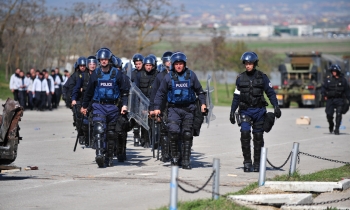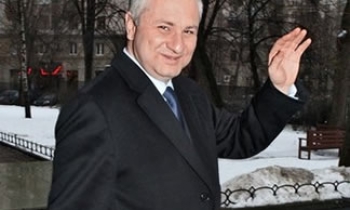Russian President Vladimir Putin has decreed the creation of a new Soviet-style agency to regulate the media and the Internet. This has sparked fears among many Russian journalists of a bid to extend tight publishing controls to the relatively free Web.

Putin signed a decree last week merging two existing agencies into one that will license broadcasters, newspapers and Web sites and oversee their editorial content.
The step, taken with national elections due next year, unites the Federal Service for Telecom Supervision (Rossvyaznadzor) and the Federal Mass Media and Cultural Heritage Oversight Service (Rosokhrankultura).
The new service will be responsible for legal regulation, control and supervision over information technologies, communications, mass information and communications and protection of copyright and the cultural heritage.
It will also partly exercise authority of the Federal Communications Agency (Rossvyazi) - management of the Radiofrequency Service, which coordinates operation of a number of state companies that study the radiofrequency spectrum and, among other things, issue reports on unassigned RF availability for telecom operators.
The government has three months to develop regulations for the new federal service and reassign functions of the Ministry for Information Technologies and Communications, Rossvyaz, the Ministry for Culture and Mass Communications and the Federal Agency for Press and Mass Communications (Rospechat).
The purpose to attain is “to improve efficiency of government’s activities for cultural heritage protection” and “to eliminate interdepartmental contradictions and administrative barriers en route of IT advance in Russia and to ease the system of their control,” said representatives of the government’s news service.
Under Putin’s rule, independent publishers have mostly been taken over by Kremlin-friendly businessmen. The domestic media are under heavy pressure not to criticise the government, making journalists suspicious of any official initiative.
Raf Shakirov, who was dismissed as editor of the daily Izvestia after critical coverage of the 2004 Beslan school siege, said Putin’s decree could extend Soviet-style controls to Russia’s online media, which have been relatively free. “This is an attempt to put everything under control, not only electronic media but also personal data about people such as bloggers,” he told Reuters.
Russians have increasingly turned to the Internet to find independent sources of information. Authorities, however, have already fired a warning shot across the bows of one leading news Web site, www.gazeta.ru, which got an official warning last year for “extremism” after writing about cartoons that satirised prophet Mohammed.
Roman Bodanin, political editor at gazeta.ru, said the new regulator could make it easier for the government to track and pressure independent media because the same agency would grant licenses and supervise content.
Andrei Vasilyev, editor of the daily Kommersant, saw the move as part of a Kremlin drive to consolidate power before parliamentary and presidential elections in the next 12 months. “It’s very dangerous to scatter the ownership of broadcasting frequencies and licenses between different institutions,” he said about the Kremlin, saying he was speaking in a personal capacity. “There might be a loophole for some alternative information channel.”
Officials said Russia’s media would benefit from the new body, due to start work within three months. “The question of regulation will now be easier,” said Yevgeny Strelchik, a spokesman for Rosokhrankultura. He dismissed fears about more control over the media as “journalists’ fantasies.”
No official announcement has been made on who will head the regulator.









